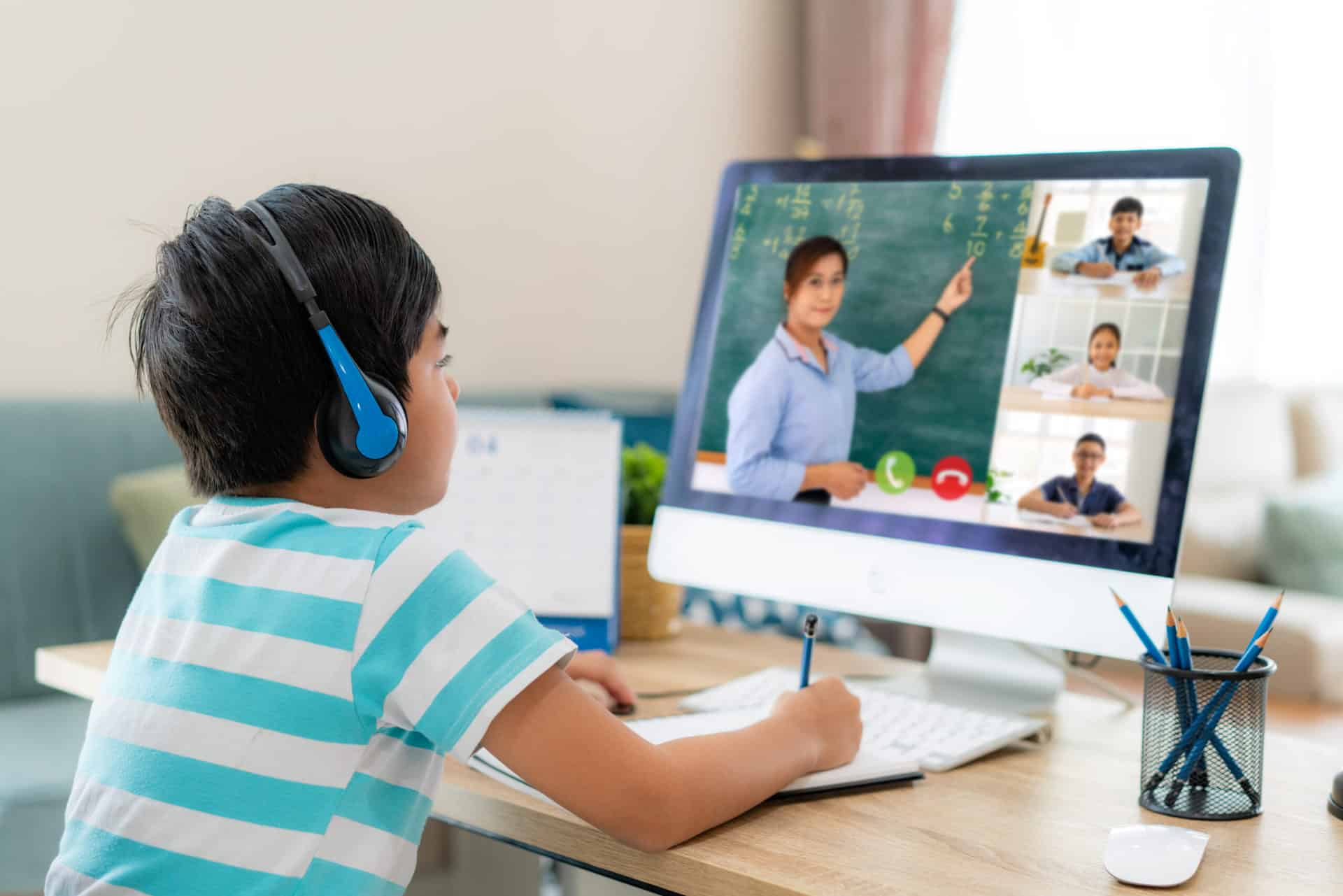Homeschooling Trends 2025: The Complete Guide to Modern Home Education Revolution
Homeschooling Trends 2025: The Complete Guide to Modern Home Education Revolution
The landscape of education is undergoing a dramatic transformation, and homeschooling stands at the forefront of this revolution. As we navigate through 2025, homeschooling has evolved from an alternative educational approach to a mainstream choice embraced by millions of families worldwide. This comprehensive guide explores the latest homeschooling trends, statistics, benefits, challenges, and innovative approaches that are reshaping how children learn in the 21st century.
:max_bytes(150000):strip_icc()/GettyImages-1288683983-9dfb322585ba4607a3d397b8d2f97ca5.jpg)
What is Homeschooling? Understanding the Modern Definition
Homeschooling, also known as home education or parent-led education, refers to the practice of educating children at home rather than in traditional public or private schools. According to the National Center for Education Statistics (NCES), homeschooling encompasses students who receive all or part of their education at home, excluding those who attend conventional schools for more than 25 hours per week.
This educational approach has evolved significantly over the decades, transforming from a fringe movement to a recognized and respected form of education. Modern homeschooling incorporates various methodologies, from structured curriculum-based learning to unschooling approaches that follow the child's natural interests and curiosity.
Key Characteristics of Contemporary Homeschooling
- Personalized learning experiences tailored to individual children's needs, interests, and learning styles
- Flexible scheduling that accommodates family lifestyle and children's natural rhythms
- Integration of real-world experiences and hands-on learning opportunities
- Strong family bonding and values-based education
- Technology integration and online resources utilization
Explosive Growth: Homeschooling Statistics and Trends in 2025
The homeschooling movement has experienced unprecedented growth, particularly following the COVID-19 pandemic. Current data reveals remarkable statistics that highlight the increasing popularity of home education across the United States and globally.

Current Homeschooling Numbers and Demographics
According to the latest research from the National Home Education Research Institute (NHERI) and Pew Research Center, homeschooling has reached significant milestones:
- 3.7 million students are currently homeschooled in the United States as of 2024-2025
- 6.73% of all K-12 students are now educated at home, representing a substantial increase from pre-pandemic levels
- 41% of homeschool families are non-white/non-Hispanic, showcasing the diversity of the movement
- The homeschool population grew by an estimated 373% increase in recent years
- Over 9 million Americans have experienced homeschooling at some point in their educational journey
Geographic Distribution and State Variations
Homeschooling growth varies significantly across different states, with Alaska, North Carolina, and several other states leading in homeschool populations. This geographic variation often correlates with state regulations, cultural attitudes toward education, and available resources for homeschooling families.
Primary Motivations: Why Families Choose Homeschooling
Understanding why families choose homeschooling provides crucial insights into the movement's growth and sustainability. Research consistently shows that parents cite multiple, interconnected reasons for their decision to educate their children at home.

Top Reasons for Choosing Homeschooling
According to the National Center for Education Statistics and NHERI research, the most common motivations include:
- School environment concerns (83%): Safety issues, negative peer pressure, drugs, and bullying concerns
- Moral instruction preference (75%): Desire to provide values-based education aligned with family beliefs
- Academic dissatisfaction (72%): Concerns about quality of instruction and academic standards in traditional schools
- Family togetherness (72%): Strengthening family bonds and spending more time together
- Religious instruction (53%): Integration of faith-based teachings into education
- Nontraditional approaches (50%): Interest in alternative pedagogical methods
Special Needs and Individualized Learning
A significant portion of homeschooling families (21%) choose this path because their children have special needs that they believe traditional schools cannot adequately address. This includes learning disabilities, giftedness, health issues, and other unique circumstances requiring personalized educational approaches.
The Technology Revolution in Homeschooling
Technology has fundamentally transformed the homeschooling landscape, providing unprecedented access to educational resources, expert instruction, and global learning communities. The integration of digital tools has made high-quality education more accessible and engaging than ever before.

Digital Learning Platforms and Tools
Contemporary homeschooling leverages various technological solutions:
- Online curriculum platforms offering complete K-12 educational programs
- Virtual reality experiences for immersive learning in history, science, and geography
- Artificial intelligence tutoring systems providing personalized instruction and feedback
- Educational apps and games making learning interactive and engaging
- Video conferencing tools connecting students with teachers and peers worldwide
- Learning management systems for organizing curriculum and tracking progress
Benefits of Technology Integration
Technology integration in homeschooling offers numerous advantages, including access to specialized instruction, global educational resources, and preparation for digital literacy skills essential in the modern workforce. However, families must also navigate challenges such as screen time management, digital distraction, and ensuring balanced learning experiences.
Microschooling and Hybrid Learning Models
One of the most significant trends in 2025 is the rise of microschooling and hybrid learning models. These innovative approaches combine the benefits of homeschooling with small group learning experiences, creating new educational paradigms that are gaining popularity across the country.

Understanding Microschools
Microschools are small, mixed-age learning environments that typically serve 5-15 students. These innovative educational settings combine the personalization of homeschooling with the social benefits of traditional classroom settings. Since the pandemic, microschools have experienced explosive growth, offering families flexible alternatives to conventional education.
Key Features of Microschooling
- Small class sizes enabling individualized attention and personalized learning
- Mixed-age groupings promoting peer mentoring and collaborative learning
- Flexible curriculum adapted to students' interests and learning styles
- Community-based learning with strong parent involvement
- Technology integration for enhanced learning experiences
Hybrid Learning Approaches
Hybrid learning models combine homeschooling with part-time enrollment in traditional schools, online courses, or co-op programs. This flexibility allows families to customize their children's education while accessing resources and opportunities that might not be available through homeschooling alone.
Comprehensive Benefits of Homeschooling
Research consistently demonstrates numerous benefits associated with homeschooling, spanning academic achievement, social development, and personal growth. Understanding these advantages helps explain why more families are choosing this educational path.

Academic Performance and Achievement
Extensive research by the National Home Education Research Institute reveals impressive academic outcomes for homeschooled students:
- Homeschooled students typically score 15-25 percentile points above public school students on standardized tests
- 78% of peer-reviewed studies show homeschoolers perform statistically significantly better academically
- Black homeschooled students score 23-42 percentile points above their public school counterparts
- Academic success is independent of parents' education level or teacher certification
- Homeschoolers consistently score above average on SAT and ACT college entrance exams
Social and Emotional Development
Contrary to common misconceptions about socialization, research indicates that homeschooled children often excel in social and emotional development:
- 87% of studies show positive social, emotional, and psychological outcomes
- Enhanced self-concept and leadership skills development
- Strong family cohesion and intergenerational relationships
- Active community service participation and civic engagement
- Regular involvement in diverse social activities outside the home
Personalization and Individual Growth
Homeschooling's greatest strength lies in its ability to provide truly personalized education. This individualization allows children to learn at their own pace, explore their interests deeply, and develop their unique talents and abilities without the constraints of traditional classroom settings.
Challenges and Solutions in Modern Homeschooling
While homeschooling offers numerous benefits, families also face various challenges that require careful consideration and strategic solutions. Understanding these challenges helps families prepare and develop effective strategies for successful home education.

Common Challenges Faced by Homeschooling Families
- Time management and scheduling: Balancing education with household responsibilities and work commitments
- Curriculum selection and planning: Choosing appropriate educational materials and creating structured learning plans
- Socialization concerns: Ensuring adequate peer interaction and social skill development
- Financial considerations: Managing the cost of curriculum, materials, and potential lost income
- Subject expertise limitations: Teaching advanced subjects beyond parental knowledge
- Record keeping and documentation: Maintaining proper educational records for college and career purposes
Practical Solutions and Resources
Successful homeschooling families have developed numerous strategies to address these challenges:
- Co-op programs and support groups for shared teaching responsibilities and socialization
- Online tutoring and virtual classes for advanced or specialized subjects
- Standardized testing and portfolio assessments for academic progress tracking
- Community resources and field trips for experiential learning opportunities
- Technology tools and educational software for efficient curriculum delivery
Expert Insights and Professional Perspectives
Leading education researchers, child development experts, and experienced homeschooling advocates provide valuable insights into the future direction of home education and its impact on children's development.


